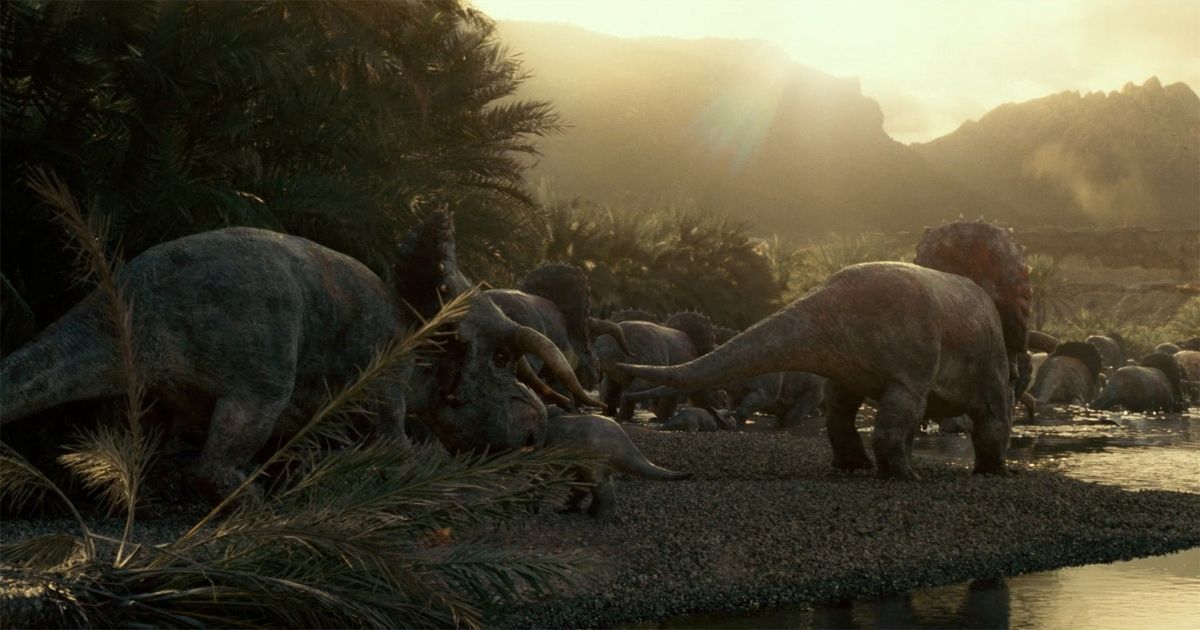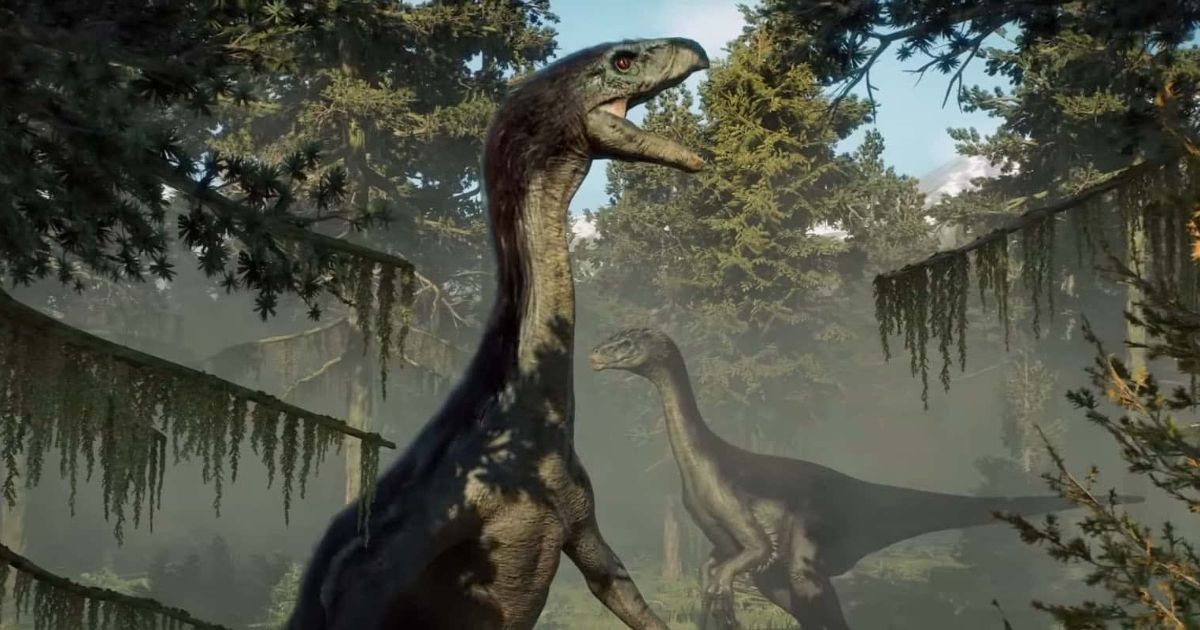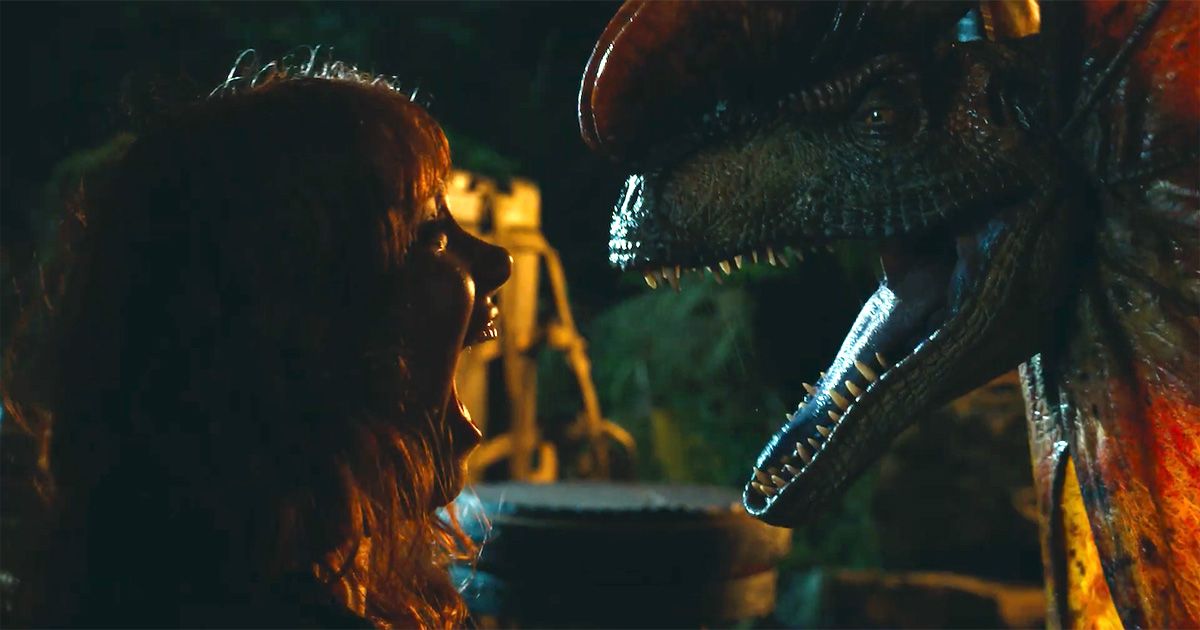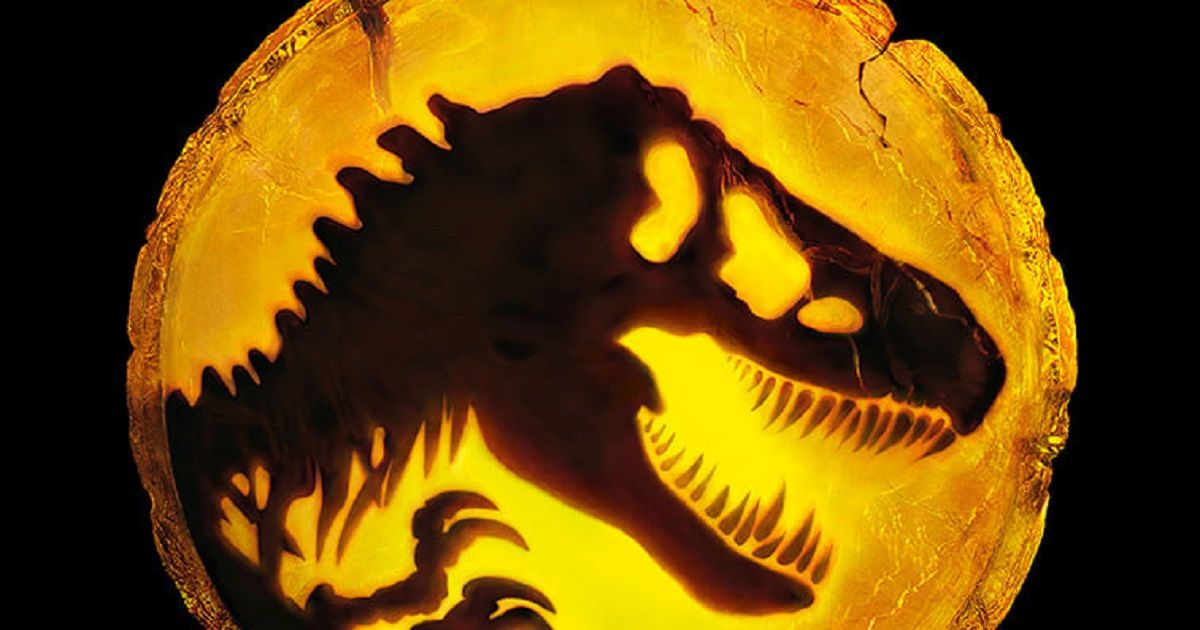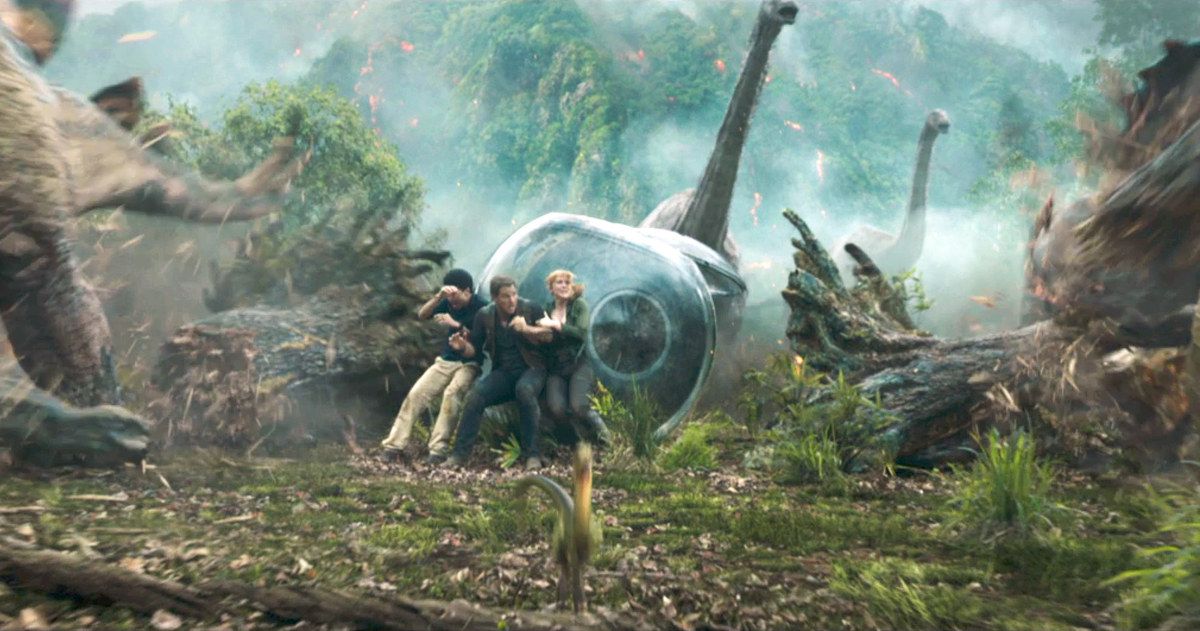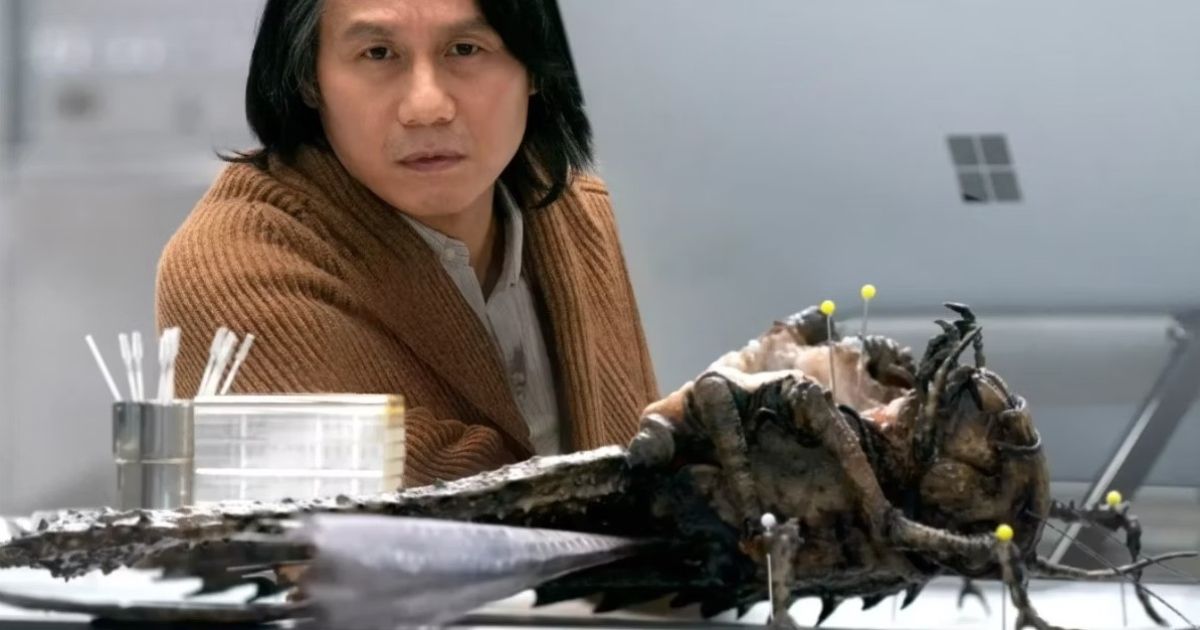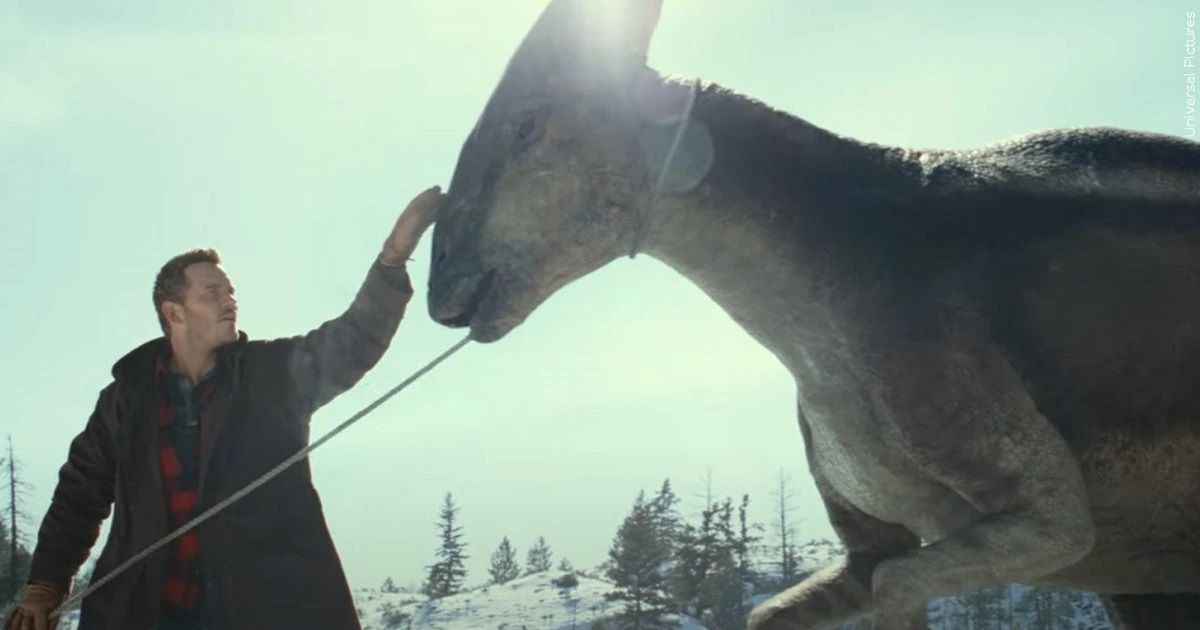Spoiler Warning: Jurassic World: Dominion
Jurassic World: Dominion was responsible for ending the Jurassic Park series and the Jurassic Saga on a potentially thought-provoking note. The predecessor to the film, Jurassic World Fallen Kingdom, had set the stage for a story never exploited before in the franchise. The genetically engineered dinosaurs were now amidst us, leading the world into a neo-Jurassic age. The idea that never came to light in previous films would finally be a decisive part of the story. In what was promised to be an epic conclusion to the saga, fans hoped it would cover new themes, extending beyond certain characters and an enclosed reserve of dinosaurs.
Unfortunately, the film killed that idea and repeated what each film has since the original. And therefore, it's probably time Universal drops the franchise, which appears to have run its course. Critics tend to support this following the final entry of Jurassic Saga.
The Idea of a Neo-Jurassic Age
Before the release of Jurassic World: Dominion, Universal Pictures released a short teaser on its YouTube channel. The film began with a sequence featuring the dinosaur species wandering in the Jurassic age, sixty-five million years ago, and then cut to T-Rex wreaking havoc on an open theater. The short was a glimpse into what was coming next to the franchise. A story that should have discussed and explored the true impact of dinosaurs living amongst humans. Not in a caged facility, but in the wilderness, looking towards an impending invasion of urban land and the shoreside.
It wasn't just a short film. The trailers also featured sequences that hinted at the same. Dinosaurs destroy military-grade vehicles, hamper fishing operations, and take over the sky. The trailer featured actors talking about the "mistakes they made" and the "ecological disaster" they caused.
But, Jurassic World: Dominion discarded this prologue and went directly four years ahead of the predecessor film. The only glimpse of the dinosaur's escape caused included a series of newsreels that showed how the events from the Fallen Kingdom opened up a black market trade of dinosaur species. No background into it, exploration of the turmoil the past four years have caused, and no discussion of what became of the Lockwood-Hammond legacy.
Such an idea could have transformed the movie into a pure sci-fi film that would've portrayed both the abrupt turnaround of the food chain and the conflicting ideologies of our characters in this fight over nature and its reserves. Not just that, but this could have given Jurassic World: Dominion a chance to set itself aside from other sequels and explore something engaging as the original Jurassic Park did. Ignoring such a crucial subplot removed the unique storyline that no previous film had explored earlier and robbed Dominion of originality.
Characters Trapped in a Dinosaur Cage
Just one thing has always been common about all Jurassic films. In each film, the central characters find themselves trapped in a location surrounded by dinosaurs, making it a life-threatening endeavor. The idea worked well for the first Jurassic Park film because, at the time, it was exceptionally original, and the film featured groundbreaking work in special effects and animatronics. When the subsequent two films in the original trilogy adopted a similar approach, it didn't work the same way.
Years later, Jurassic World did almost a similar thing but notched up every aspect of the story. The dinosaurs were scarier and new, the effects had taken a spectacular leap, and critics and the audience alike clearly appreciated the themes of corporate excess and consumerist capitalism. The generation gap between Jurassic Park III and Jurassic World was an added benefit that led to its success. But then again, Fallen Kingdom failed.
For Dominion, it was a chance to avoid past sequels' mistakes and present something different. The threat that originated from humankind's greed was now amidst it, and there were no cages or fences to keep them contained. This time, it could have been a fight for control between two species separated by millions of years. But Dominion jumped the gun and made the same mistake as the other sequels. This time, the dinosaurs were brought into another enclosed reserve, although a larger one. A new corporate giant, Biosyn, had somehow jumped upon Jurassic World's failure and has come on top of the game. Now, this company is using dinosaur genes for new scientific experiments while keeping them "safe" (or contained) in a controlled facility.
By the end, the characters find themselves trapped in this massive reserve while the dinosaurs break loose out of confined areas, which causes severe destruction to the facility. There's a great battle between two gigantic dinosaurs, one of whom is the old T-Rex. The characters barely escape the confrontation and walk back into their lives with new perspectives. Sounds like something you've previously seen? Well, that's every other Jurassic sequel. Dominion wasn't any different. The concept had gone pretty dull for a sixth and conclusive film in the franchise, and there wasn't any originality in the story.
Biosyn - Another Corporate vs. Nature Battle
The point of Jurassic World turning into a trilogy was to extend what the original trilogy established. And it seemed that it was going in that direction. Jurassic World was a reincarnation of the 1993 classic; however, things took a different turn in the Fallen Kingdom. It saw the natural habitat of the dinosaurs destroyed by natural calamity and their subsequent abrupt shift amidst the human civilization. While Dominion was supposed to go in a forward direction from here, it went backward.
Biosyn is a corporation headed by Dr. Lewis Dodgson. The character marked his first appearance in the 1993 original film, where Dennis Nedry gave him a few samples of fertilized dinosaur embryos. In Jurassic World, we saw that, while Hammond's estate redeveloped the theme park attraction, Dodgson somehow found those embryos and made a fortune for himself and Biosyn. In Jurassic World: Dominion, Biosyn now controls, operates, and maintains a large forest reserve to accommodate several dinosaur species. It monitors their activity, experiments with their DNA, and even tries to fulfill a secret agenda.
Like the previous films, the story once again revolved around a corporate giant trying to take on the natural law. First, it was Hammond, Masrani, Lockwood, and now Dodgson. Dominion turned the idea of a conflict between species into a fight against corporate excess and greed - a theme that isn't fresh for a Jurassic film and has run its course in the franchise. It was probably another blow to originality in the script.
Dominion Didn't Connect to Its Predecessors
Jurassic World: Dominion failed to establish the connection between the dinosaur's sudden escape from their reserves and their re-habitation at Biosyn. Meaning there was no clue as to what that event caused in the four years that have passed. The trailers clearly hinted that the film should explore it. But, all we found is that humans have figured out a way to capture these dangerous species and even control their actions, thus, creating a global black market dealing in them.
Dominion couldn't connect to the vast storyline that its predecessors had long-established. The film wasn't only responsible for being a sequel to the Fallen Kingdom but a sequel to all previous films. However, what turned out was just an obligation of the makers as they needed to conclude the vast saga.
Dinosaurs' Roles In Dominion Were Heavily Downplayed
For Jurassic Saga, scare and horror elements come from the sequences. The sequences of brutal deaths and close-up shots of the sharp teeth added to the jump scares and haunting thrill in the theaters. T-Rex, the raptors, Indomius Rex, etc., have left an imprint on the franchise. Their appearance created through CGI and animatronics has been well appreciated throughout. But, Dominion didn't feature any such species prominently. In fact, the dinosaurs didn't even play a crucial role in this one. There were a few sequences that featured that placed the animals on the forefront, but none of them were thrilling or mildly entertaining.
In some prominent sequences, the film featured Giganotosaurus, Tyrannosaurus Rex, and a Quetzalcoatlus. Still, the encounters and altercations they had between themselves or the central characters made no severe impact on the movie. In fact, after facing the dino threat in three separate encounters, the characters somehow reunite, which was an unconvincing moment in the film.
While the visuals were good, and the return of Dilophosaurus felt nostalgic. But that was it. The dinosaurs had no significant role in the movie, despite having crossed over from cages into the midst of the human population. The dinosaurs in Jurassic Series are as crucial as the lead human characters. That's something Steven Spielberg quite perfectly established in the original film. Dominion tends to just forget about it. And to top that, these dinosaur species lost their way in the film as none of them were integral to the core story.
The Locusts Subplot
In Jurassic World: Dominion, Henry Wu develops a species of locusts from dinosaur DNA that eat up crops that are not produced over Biosyn seeds. The film shows that Biosyn is launching these locust attacks on independent crops to trigger a global famine and eventually boost sales of the Biosyn-seeds for crop plantation. That sounds like a severe threat. And in the first few minutes, Dominion features these deadly locusts, which are pretty scary and definitely hook the viewers in. But then, that is all we see of these locusts.
The majority of the film covers the central cast trying to figure out Biosyn's role in these attacks, but we don't get a proper glimpse of the engineered locusts. These new dinosaur species are the focused animal antagonists of the film; however, they hardly get a chance to show how deadly they can be. By the time an incident triggers these locusts' escape from Biosyn labs, the film has reached its last leg, thus giving no time for any action involving them.
As I said, such creatures are the cinematic highs of Jurassic Saga, and therefore, several eyes were on the unraveling of this subplot, which fell pretty hard on the ground.
Conclusion
Jurassic Saga has been about the suspension of disbelief. Dominion wasn't able to do that. Perhaps because we have seen a similar line of storytelling in the previous five films, and this time, it just became dull. The film just did rounds of the stories explored in its predecessor films, which resulted in a caricature of loopholes, inconsistencies, and unprogressive character arcs.
The writing was lacking in the sense that it forcefully tried to bring every character into one frame. The makers probably wanted the big moment where the original cast members share the screen with the new ones. So, they twisted the plot so that each of these characters finds themselves in the same spot at one point. There was no connection between the characters' movements before they wind up together during the movie's final moments.
Over three decades of the timeline set in the Jurassic Saga, the final entry was supposed to fulfill the original's legacy. However, Dominion re-established the original Jurassic Park as the finest film of the franchise. In the '90s, Jurassic Park set standards that this franchise may have to chase forever, even if there's any continuation to it in the future.

